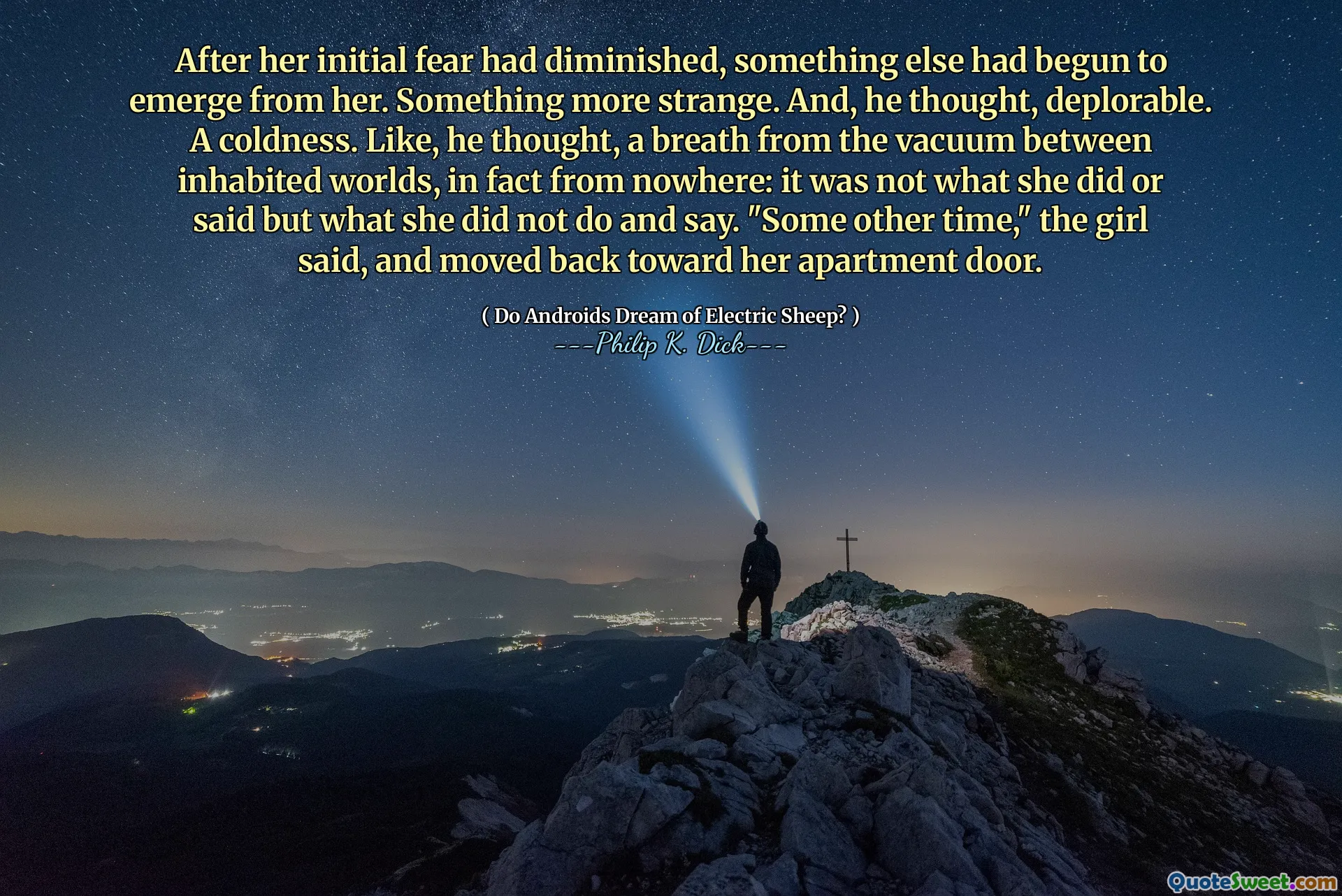
After her initial fear had diminished, something else had begun to emerge from her. Something more strange. And, he thought, deplorable. A coldness. Like, he thought, a breath from the vacuum between inhabited worlds, in fact from nowhere: it was not what she did or said but what she did not do and say. "Some other time," the girl said, and moved back toward her apartment door.
As the initial fear subsides, a new, unsettling quality begins to surface within the character. This transformation is marked by a chilling detachment that contrasts sharply with her previous emotions. The observer notes a profound coldness, akin to an emptiness that emanates from a space devoid of life, emphasizing the stark absence of warmth in her interactions. This change raises a sense of dread in him as he realizes that her silence and inaction speak volumes, hinting at a deeper disconnection.
The girl's retreat, expressed through her words, "Some other time," symbolizes her growing disengagement and emotional distance. As she turns away, it underscores a significant shift in her persona, transitioning from fear to an unsettling calmness that leaves the observer disturbed. This moment encapsulates the complex interplay between emotion and alienation, suggesting a deeper existential dilemma that resonates throughout the narrative.











